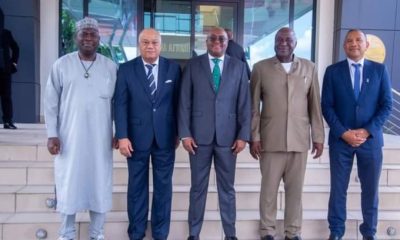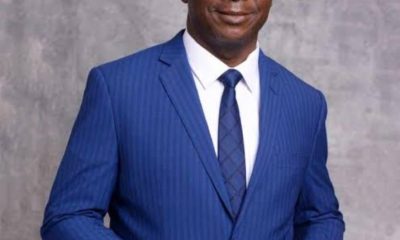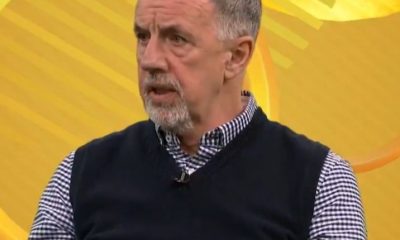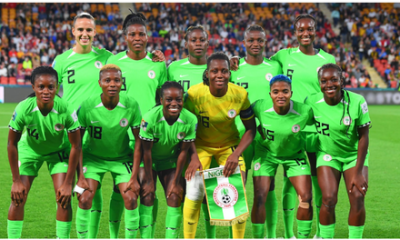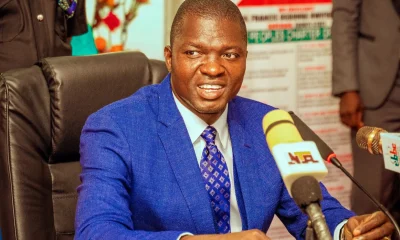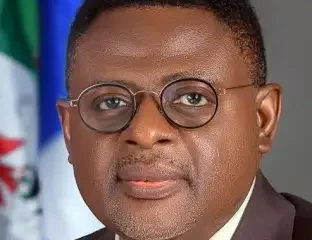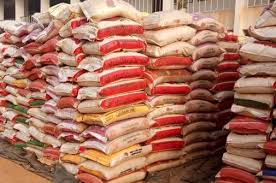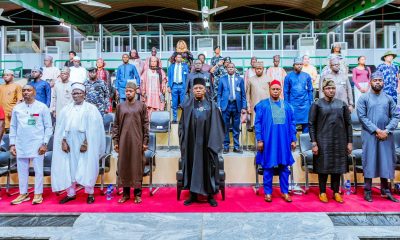Alhaji Aliko Dangote, President of Dangote Group, has asserted that products refined at Dangote Petroleum Refinery and Petrochemicals are of superior quality compared to imported equivalents and meet international standards.
Mr Anthony Chiejina, Chief Corporate Communications Officer, Dangote Group, quoted Dangote in a statement on Sunday in Lagos.
He said Dangote disclosed this during a tour of the Dangote Petroleum Refinery and Dangote Fertiliser Ltd. complex by members of the House of Representatives.
He said the tour included the Speaker of the House of Representatives, Mr Tajudeen Abbas, and other members who observed the testing of Automotive Gas Oil (diesel) from two petrol stations alongside Dangote Petroleum Refinery.
Chiejina said that Dangote expressed his confidence after the House leadership insisted on testing other diesel products, alongside Dangote’s diesel at its state-of-the-art laboratory.
He said that the diesel samples were procured from two well-known filling stations near Eleko junction along the Lekki Epe Expressway, by the members.
According to him, the Chairman of the House Committee on Downstream, Mr Ikeagwunon Ugochinyere, and the Chairman of the House Committee on Midstream, Mr Okojie Odianosen, monitored the collection of samples from the Mild Hydro Cracking (MHC) unit of Dangote refinery for testing of all the samples.
“Lab tests revealed that Dangote’s diesel had a sulphur content of 87.6 ppm (parts per million), whereas the other two samples showed sulphur levels exceeding 1800 ppm and 2000 ppm respectively,” he said.
Dangote emphasised that these findings debunked claims made by Farouk Ahmed, Chief Executive Officer of the Nigerian Midstream and Downstream Petroleum Authority, who recently said that imported diesel surpasses domestically refined products.
Ahmed had alleged that the Dangote refinery and other modular refineries like Waltersmith and Aradel produced diesel with sulphur content ranging from 650 to 1200 ppm—a statement criticised by many Nigerians as a tactic to favour imported products over local ones.
Dangote openly challenged the regulator to compare the quality of refined products from his refinery with those imported, advocating an impartial assessment to determine what best serves the interests of Nigerians.
“We produce the best diesel in Nigeria. It’s disheartening that instead of safeguarding the market, the regulator is undermining it.
“Our doors are open for the regulator to conduct tests on our products anytime; transparency is paramount to us.
“It would be beneficial for the regulator to showcase its laboratory to the world so Nigerians can compare. Our interest is Nigeria first because if Nigeria doesn’t grow, we have limited capacity for growth.
“Right Honourable Speaker and esteemed members, you’ve witnessed the results of the credibility test.
“I appreciate your wise counsel in procuring samples from the filling stations alongside our refinery’s product.
“Ours show a sulphur content of 87.6 ppm, approximately 88, whereas the others exceeded 1,800 ppm.
“Although the NMDPRA permits local refiners to produce diesel with sulphur content up to 650 ppm until January 2025, as approved by ECOWAS, ours is significantly lower.
“We aim to achieve 10 ppm, aligning with the Euro V standard. Imported diesel is capped at 50 ppm, but as you’ve seen, those from the stations, imported by major marketers, fall well outside this standard.”
Dangote pointed out that high-sulphur content diesel regularly imported into the country often comes with dubious certifications.
He emphasised that the most effective method to verify the quality was to purchase the product directly from filling stations and conduct credibility tests.
According to him, this issue has resulted in both health risks and financial losses for Nigerians.
“Dubious certifications often accompany the importation of high-sulphur diesel into Nigeria, causing both health risks and financial losses for Nigerians.
“The best method to verify this is to purchase the product directly from filling stations where end-users obtain it.
“I believe Farouk Ahmed speaks without sufficient knowledge of our refinery. We have successfully exported diesel and jet fuel to Europe and Asia without any complaints; in fact, we have received repeated orders, indicating satisfaction with our products,” Dangote noted.
Supporting Dangote’s assertion, vice president of Gas and Oil at Dangote Industries Ltd., Devakumar Edwin, highlighted recent actions by European countries like Belgium and the Netherlands.
“These countries have expressed concerns about the carcinogenic effects of high-sulphur diesel being dumped into the Nigerian market, prompting them to impose bans on such fuel exports to West Africa.”
Edwin informed the federal lawmakers that the Dangote Petroleum Refinery, designed to process a wide range of crudes including various African and Middle Eastern crudes, as well as US Light Tight Oil, conforms to Euro V specifications.
In addition, he said, it is designed to comply with US EPA, European emission norms, Department of Petroleum Resources (DPR) emission/effluent norms, and African Refiners and Distribution Association (ARDA) standards.
Noting that products from the 20 billion dollar facility were of high quality and meet international standards, Edwin said it had the capacity to meet 100 per cent of Nigeria’s demand for petrol, diesel, kerosene, and aviation Jet, with surpluses available for export.
Expressing concern over the controversy surrounding the quality of imported refined products into Nigeria, Abass stated that the Green Chamber would establish a committee to investigate the matter thoroughly.
He emphasised that sampled products from various sources would undergo testing as part of this initiative.
The Speaker also expressed admiration for the infrastructure at the Dangote Oil Refinery, describing it as a significant asset in Nigeria’s quest for self-sufficiency in petroleum products.
He noted that the refinery had positioned itself as a pivotal player, especially at a time when global concerns over energy security and sustainability are paramount.
“Today’s visit to the magnificent facilities of Dangote Industries Oil Refinery section has been nothing short of enlightening.
“It has afforded us a rare opportunity to witness first-hand the monumental strides that your organisation has made in transforming the landscape of petroleum production in Nigeria.
“The sheer scale and sophistication of this facility are awe-inspiring; it stands as a beacon of hope for our country as we navigate through the turbulent waters of energy supply challenges,” he said.
Commending the state-of-the-art technology implemented at the petroleum refinery, Abbas praised it as revolutionary and a shining example of engineering and innovation excellence.
“Each corner of this facility resonates with the echoes of hard work, dedication, and an unyielding pursuit of quality.
“It is evident that every drop produced here carries not just oil but also the hopes and dreams of millions who yearn for a brighter future.
“We are deeply impressed by what we have seen during this visit which confirms the rating of this industry as the single largest oil refinery in Africa.
“This remarkable achievement does not merely reflect corporate success; it symbolises national pride, a tribute to what can be accompanied when visionary leadership meets relentless determination,” he said.
Acknowledging the numerous challenges likely encountered during the construction of the refinery, the Speaker lauded Dangote for his steadfast commitment to achieving excellence.
“I would like to take this opportunity to acknowledge the myriad challenges that have beset this remarkable facility.
“The regulatory hurdles that often loom like dark clouds over progress, the complexities surrounding crude oil supplies that can stifle even the most ambitious endeavours.
“And the daunting economic landscape we navigate especially in these times when our economy grapples with foreign exchange constraints are all formidable adversaries.
“Yet, despite these tribulations, your unwavering commitment to excellence shines through,” he attested.









